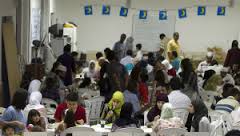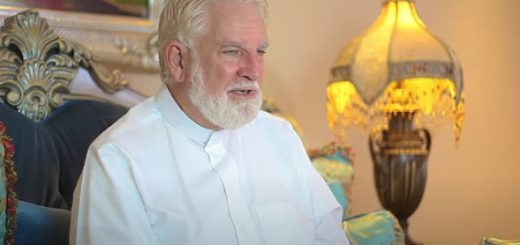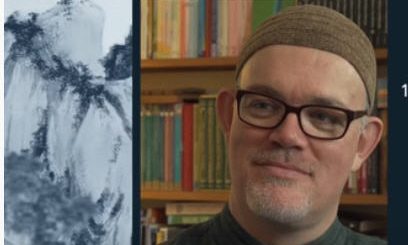Brazil’s Growing Muslim Population Adapt For Ramadan
Short days and pleasant weather ease the fast for Brazil’s growing Muslim population.
BRASILIA, Brazil – For Ibrahim Nashawaty, a refugee from Syria now living in Brazil, his first Ramadan away from home has been a strange and unsettling experience so far.
“In some ways it is much harder here,” he tells AA, at the only mosque in Brazil’s capital Brasilia. “Everyone is eating and drinking on the streets all the time, because they are mainly Christians.”
“It is strange for me to see,” he adds.
But the 19-year-old, who fled the civil war raging in Syria six months ago with his three brothers and parents, admits that fasting in Brasilia has its benefits.
“In my country, at the moment, it is so, so hot. Here it is very pleasant, and the day is short,” he said. “I am hungry, but I am happy to be here with all my family.”
Although still proportionally small – 35,167, or approximately 0.02 percent of the 199 million-strong population – Brazil’s Muslim community is growing, swelling 29 percent between 2000 and 2010, according to census figures.
In Brasilia, many Muslims gather for prayer at the Islamic Center of Brasilia, a tranquil walled mosque in the city’s north. There to pray and break his fast with friends after sundown was Yassin Adnane, a translator for the Iraqi embassy. Originally from the north of Morocco, Adnane estimated that there were between 3,000 and 5,000 Muslims in Brasilia.
“There are aspects of Brazil that make fasting here more difficult,” he said, “such as the dryness of the climate, the way women dress, the smell of coffee and cigarettes on the street – for me, giving up coffee is the most difficult thing.”
“But in Iraq or Kuwait, it could be 53 or 54 degrees Celsius at this time of year,” Adnanesaid. “We eat little salt at night, to diminish our thirst the next day, and no blue fish, like tuna, which also encourages thirst.”
Adnane added that as he had married a non-Muslim Brazilian woman, he often spent a lot of time at the mosque during the month of Ramadan.
“The foods we eat at night here at the mosque very calorific; honey, lots of nuts, yogurt,” he said. “But at home I have a Brazilian wife, who is half Christian and half Buddhist, so we don’t eat traditional foods of Ramadan there.”
As one of the five pillars of Islam, Ramadan is mandatory for Muslims. However exemptions can be made for pregnant women, or people who are sick, travelling, or elderly.
Ramadan came into the international spotlight this week when the coach of the Algerian national team angrily rebuffed questions about which members of his team would observe the fast during their second-round World Cup game against Germany — Algeria held the European powerhouse off until extra time, but ultimately lost 2 – 1.
“The Algerian players could have asked for a dispensation, sure, but I understand why they didn’t. They are Muslims, and they are accustomed to fasting,” said Adnane. “No one dies for not drinking water for a few hours.”
Bakhtear Binalam, from Bangladesh, who has been working in Brasilia for a year and half as a waiter, said that although he liked football, seeing people eating and drinking during the World Cup was not making his fast any more difficult.
“For me this is the greatest expression of my religion, so I am very happy to do it,” he said. “It is not just about fasting, but also about charity, about giving a portion of your money to help poorer people.”
“Similarly, in fasting, I am giving a portion of my health to Allah.“
Number of View :2042

















